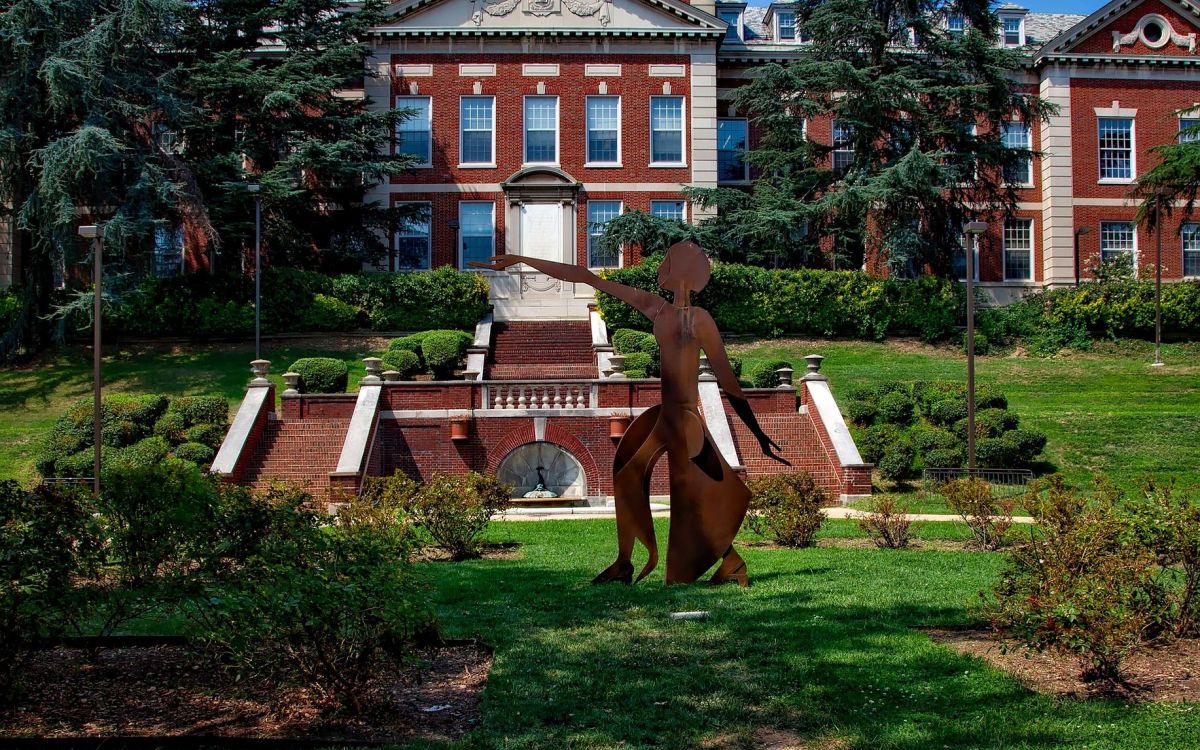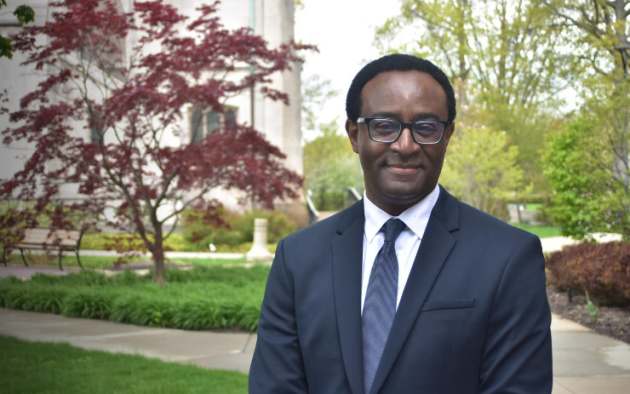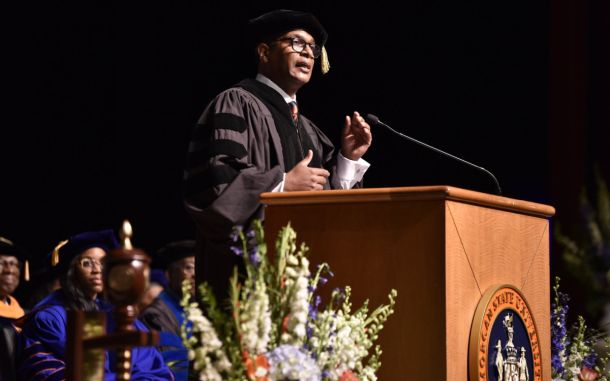
After electricity was harnessed or the printing press was industrialized, what if they were restricted only to certain groups, classes, nationalities, or races of people?
What would that have meant for human progress, and for the rights of all members of the human race to thrive? As artificial intelligence continues its march toward becoming a dominant technology integrated into virtually every aspect of human life, similar questions are being raised. Can humanity and AI coexist without irrevocably diminishing what it means to be human?
Howard University President Ben Vinson III, Ph.D., who has invested time and scholarship into examining this issue, delivered an illuminating lecture at the Massachusetts Institute of Technology as part of its Compton Lecture Series. His presentation was titled “AI In an Age After Reason: A Discourse on Fundamental Human Questions.” Much of his discussion was framed around the fundamental questions that humanity needs to ask.

“I want you to remember just how intimately connected our present, and even our future, is with our past, and previous so-called ‘ages,’ and some of the issues about humanity that emerged in them,” he said.
Opening Remarks
Vinson opened his remarks by discussing how the human capacity to reason has been mitigated by societal constructs. He referenced time periods in history when science and the power of intellect were heralded as a liberating force and a way to demonstrate the progress of humanity. In many cases where something valuable is uncovered, some people saw intellect as the exclusive province of a small number of people.
“The forces of our intellect were viewed as liberating us from older, primordial habits, worldviews, and thought processes that supposedly kneecapped human development,” said Vinson. “At the same time though, in the Age of Reason, the full power of intellect was hoarded by a select few. The true ability to reason was not believed to be available and achievable for all.”
That sentiment — that certain people were not physically capable of reason — served as the basis for any number of human-on-human atrocities. It enabled the powerful to put people into certain castes of second-, third-, and fourth-class personhood. If one’s mind wasn’t developed enough to reason, it was argued, then they weren’t fully human, and therefore didn’t have to be treated as one. Vinson posited that similar risks of dehumanization exists with the rise of AI.
“Reasoning over time has not just served to define what is human, and what it means to be human, but who could be fully human,” Vinson continued. “In some ways this question still lingers, as cultures still jostle with differences of perceived intelligence that justify subordination, creating hierarchies of human life.”
“I confess that I believe that artificial intelligence is not merely a technological advancement; it is potentially a force reshaping the very foundations of society, humanity, and the academic institutions we represent,” he said. “I also confess that as leaders in education and research, universities, and all of us in them, have a critical role to play in addressing the philosophical, ethical, and existential questions AI presents.”
About Howard Universities President Ben Vinson
Vinson is also a noted historian who has conducted significant research on Latin America and the African diaspora. He served as chairman of the National Humanities Center, is a board member of the National Humanities Alliance, and currently serves as president of the American Historical Association. His book, “Before Mestizaje: The Frontiers of Race and Caste in Colonial Mexico,” won the 2019 Howard F. Cline Book Prize in Mexican History.
The Karl Taylor Compton Lecture Series
The Karl Taylor Compton Lecture Series was established in 1957 to honor the late Karl Taylor Compton, who served as president of MIT from 1930 to 1948 and as chairman of the MIT Corporation from 1948 to 1954. The lecture series gives the MIT community direct contact with the important ideas of our times and with people who have contributed much to modern thought.
Click here to read full article
